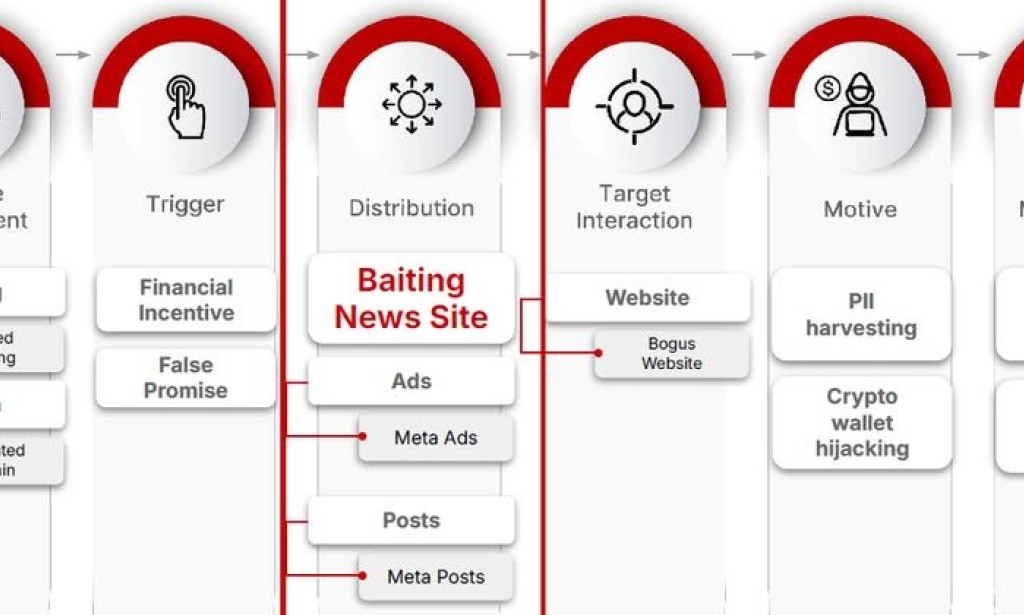In recent years, online investment fraud incidents have been frequent. One of the most common methods is for attackers to impersonate celebrities and contact victims through social media and video streaming platforms. However, some hackers also set up fake news websites that are almost indistinguishable from real ones to lure users into being scammed.
For example, the recent exposure by cybersecurity firm CM360 of the BaitTrap, a global online investment scam spanning 50 countries , illustrates this scenario. Hackers set up over 17,000 bait news sites, impersonating trusted news outlets such as CNN, BBC, CNBC, News24, and ABC News. These sites published fabricated news and used public figures and financial institutions like state-owned banks, central banks, and commercial banks to build trust. They impersonated central bank governors, national leaders, or public figures, claiming to have accidentally discovered a secret method for getting rich through cryptocurrency, thereby luring users into investment scams.
In addition, criminals also use advertising platforms such as Google and Meta to push decoy news websites, using eye-catching headlines such as "You won't believe the central bank governor just revealed how to make money from home," accompanied by official photos or national symbols to increase credibility. These ads also frequently feature photos of public figures, paired with fake news headlines to create the illusion of legitimacy.
It's worth noting that these bait news websites are often tailored to their targets, using local languages, brands familiar to the local population, financial institutions, and public figures to increase the chances of a successful scam. These websites are most prevalent in the Middle East, with over 10,000; followed by the Asia-Pacific region with approximately 3,400, but there are also bait news websites targeting Oceania, Europe, the Americas, and Africa.
Once users click on links provided by fake news, they are redirected to fraudulent platforms that claim users can easily profit and receive high rewards, and ask them to enter their personal information to register.
After registration, victims receive calls from "investment experts" who guide them through the next steps, usually instructing them on how to start a trading account. During this process, they may also request detailed personal information from victims under the pretext of verifying user identity and preparing to open an account. Incidentally, in order to open an account, the other party will also ask for uploading identity verification documents, such as ID cards or passports, and then ask them to deposit funds through cryptocurrency wallets, credit cards, or Google Play gift cards.
To lure victims into investing more money, the "investment platform" provided by the perpetrators displays fabricated returns, making them believe they are earning high returns. However, when victims try to cash out their investment returns, the platform delays them with excuses such as system errors or the need for additional verification, and claims that victims must pay unlocking fees or meet new thresholds before the returns can be released.
Incidentally, criminals often use free or low-cost domains to set up decoy news websites, but there are also cases where they hack into legitimate domain names to manage fake news web pages, making it more challenging for cybersecurity companies and law enforcement agencies to identify and remove such websites and web pages.



You must be logged in to post a comment.